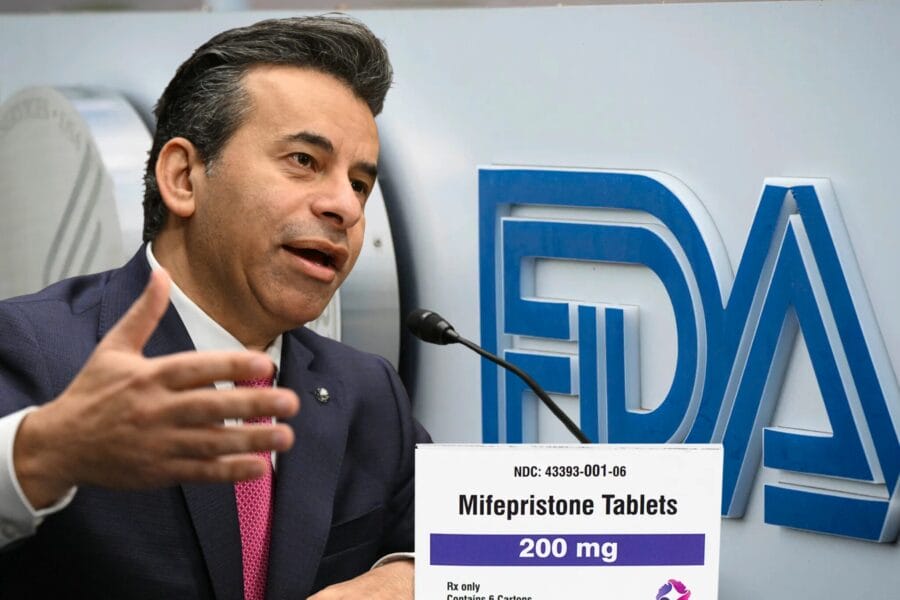Written by Carolyn McDonnell, M.A., AUL Spring Extern, 3L, Univ. of St. Thomas School of Law
Americans United for Life recently filed a friend-of-the-court brief in the Ninth Circuit Court of Appeals on behalf of citizen journalist and First Amendment champion David Daleiden. After Daleiden had engaged in undercover journalism to investigate Planned Parenthood’s alleged trafficking in aborted fetal tissue, Planned Parenthood sued Daleiden and his organization, the Center for Medical Progress (CMP), for civil racketeering, federal wiretapping, and various state law claims of fraud, trespassing, and unauthorized eavesdropping. After a jury trial, the district court granted judgment for Planned Parenthood, imposing over $1,500,000 in compensatory damages and $870,000 in punitive damages. The court then tacked on multiple millions more in attorneys’ fees and costs.
As our brief highlights, there are three prominent issues with the district court judgment.
1. David Daleiden’s undercover journalism involved issues of intense public interest.
Well before the CMP videos emerged, the funding of elective abortion was a matter of great public debate, with state lawmakers and court challenges engaging the issue. The purported link between partial-birth abortion procedures and aborted fetal tissue trafficking particularly helped motivate congressional approval of the federal Partial Birth Abortion Ban Act in 2003, 18 U.S.C. § 1531.
Against this backdrop, the CMP videos spurred at least half a dozen states to take executive or legislative action to deny public funding to Planned Parenthood. The videos also launched multiple congressional investigations into whether Planned Parenthood was, in fact, engaged in fetal tissue research in violation of federal and state law. See House of Representatives Republican Leadership, House Investigation Into Planned Parenthood, https://www.gop.gov/solution_content/plannedparenthood/. After the CMP videos emerged, the House passed multiple pieces of legislation aimed at limiting federal funding for Planned Parenthood and other providers of elective abortion. See, e.g., Defund Planned Parenthood Act of 2015, H.R. 3134, 114th Cong. (passed Sep. 18, 2015, by a vote of 241-187). In this regard, the CMP videos engaged in and renewed an ongoing national debate about abortion funding and fetal tissue trafficking.
2. Even in undercover journalism, audiovisual recordings of public interest are protected under the First Amendment, as the Ninth Circuit itself recognizes. Animal Legal Def. Fund v. Wasden, 878 F.3d 1184, 1203 (9th Cir. 2018).
From Nellie Bly’s asylum exposé to Upton Sinclair’s The Jungle, the American press has long engaged in investigative journalism. The Supreme Court likewise “has recognized that expression on public issues ‘has always rested on the highest rung of the hierarchy of First Amendment values.’” NAACP v. Claiborne Hardware Co., 458 U.S. 886, 913 (1982). As such, undercover newsgathering of public interest topics is protected First Amendment activity. Undercover investigative tactics nevertheless may expose the journalist to civil liability, such as for trespass, fraud, and breach of contract. In these cases, courts must use a “precision of regulation” when determining civil liability for constitutionally protected activity. Id. at 916.
Here, the district court failed to recognize that recording the CMP videos was a constitutionally protected activity. In turn, without a “precision of regulation” analysis, the district court erred in holding the defendants were liable for civil racketeering and federal wiretapping.
3. Under federal jurisdiction principles, the lower court should have dismissed the case.
This case is in federal court because there are two federal claims: civil racketeering under the RICO Act and wiretapping under 18 U.S.C. § 2511. Once there is federal jurisdiction, a district court also may assert supplemental jurisdiction over state law claims that are related to the federal claims. 18 U.S.C. § 1367(a). District courts, however, may eschew supplemental jurisdiction in certain instances, including when the state claims “substantially predominate” over the federal claims. 18 U.S.C. § 1367(c)(2).
Here, as AUL’s brief describes, “[Planned Parenthood’s] chain of federal and state claims is a Rube Goldberg machine of highly tenuous liability, forged together with poorly-articulated theories of ‘criminal conduct,’ ‘criminal enterprise’ and ‘fraud.’” Since undercover newsgathering is constitutionally protected activity, the First Amendment further dilutes these federal claims. As such, the state claims substantially predominate over the federal claims, and the district court should have dismissed the case.
In the end, courts need to use a “precision of regulation” when determining civil liability for activity protected by the First Amendment. Here, the district court failed to recognize and accord due regard to the public and constitutional interests when determining jurisdiction and liability for David Daleiden’s undercover journalism.




